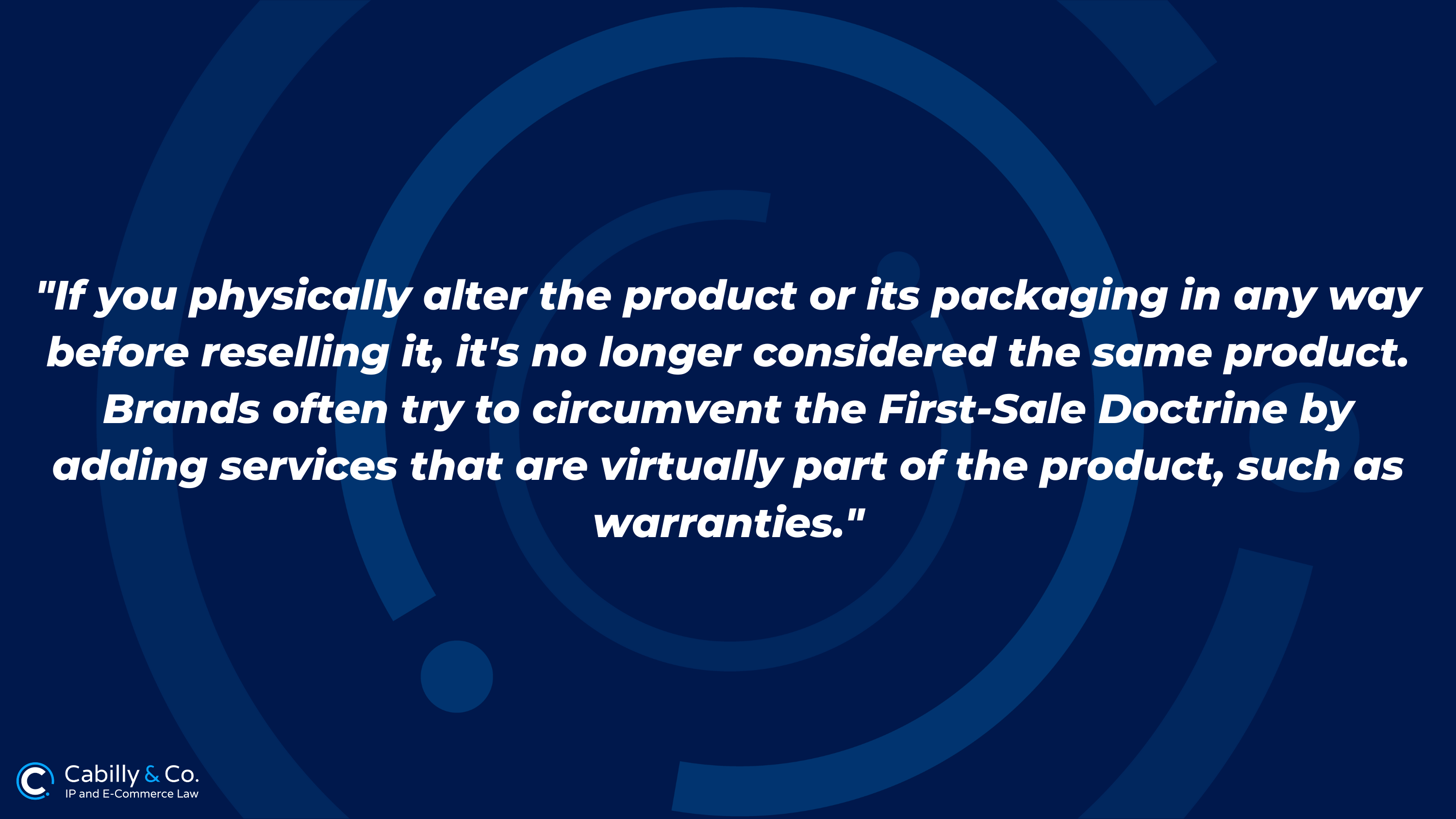Partner Post by Cabilly & Co. Law Firm
Are you currently a reseller on Amazon or thinking of taking the plunge into this venture? The immediate question that probably comes to mind is: do you need the brand’s authorization to offer their products for sale?
Your gut reaction might be to assume that permission is essential, and indeed, securing the brand’s approval is often the best practice. But is it a legal necessity? You may be surprised to hear that if you resell original products, you’re covered by the “first sale doctrine,” and it won’t be considered a trademark infringement.
That being said, there are some exceptions to the “first sale doctrine,” and some brands will persistently pursue resellers, asserting that this legal protection doesn’t apply.
What is the First-Sale Doctrine?
In essence, the first sale doctrine asserts that once a copyrighted or trademarked product has been lawfully sold or transferred for the first time by the brand owner, the purchaser gains control over that specific item. They can then resell it, rent it, or even give it away without infringing on the original creator’s intellectual property rights.
This principle acknowledges the fact that the brand owner has already profited from the initial sale and therefore no longer holds exclusive rights over that individual product. It is a legal concept that creates a balance between the rights of intellectual property holders and consumers, enabling a legitimate secondary market for branded products.
For instance, if you purchase a Nike shoe, you can resell it without needing to ask Nike for permission. This is because Nike has already benefited from their rights as the right owner when they received profits from the initial sale.
How is the doctrine used on Amazon?
Resellers on Amazon often rely on the “first sale doctrine” as a legal shield in the bustling online marketplace. By purchasing authentic products from authorized dealers or directly from the brand, resellers are engaging in a lawful first sale.
They can then list these products on Amazon and resell them without needing specific permission from the brand owner. This practice enables a thriving secondary market on Amazon, where buyers can find products from various brands, sometimes at more competitive prices. It opens doors for small business entrepreneurs to enter the market without having to negotiate with every brand they sell.
However, the waters can be murky, and resellers must be cautious. Ensuring that the products are genuine and understanding the fine line between what’s protected under the “first sale doctrine” and what might be considered a violation is vital.
Exceptions to the First-Sale Doctrine
While the “first sale doctrine” provides significant protection for resellers, it’s not without limitations and exceptions. One critical exception arises when a product has been materially altered or is sold in a condition that misrepresents the brand’s image. For example, if a reseller modifies a branded product in a way that significantly changes its quality or function, the doctrine may not apply, and the reseller could face legal challenges.
If you physically alter the product or its packaging in any way before reselling it, it’s no longer considered the same product. Brands often try to circumvent the First-Sale Doctrine by adding services that are virtually part of the product, such as warranties.
Conclusion
Navigating the First-Sale Doctrine as an Amazon seller can be complex, but understanding the basics can help you avoid potential legal issues. Remember, each case is unique and has its own set of circumstances. Therefore, it’s always best to consult with a legal professional before making any decisions based on this information.
Key Takeaways
- The First-Sale Doctrine allows you to resell a product without needing permission from the original brand, as the brand’s rights are exhausted after the first sale.
- Exceptions to the First-Sale Doctrine occur when there is a material difference between the product you purchased and the one you’re selling. This can include physical alterations or the absence of services like warranties.
- Always consult with a legal professional before making decisions based on the First-Sale Doctrine, as each case has unique circumstances.
Do you have any questions about the process? Our partners from the Cabilly & Co. law firm will be happy to help you.










